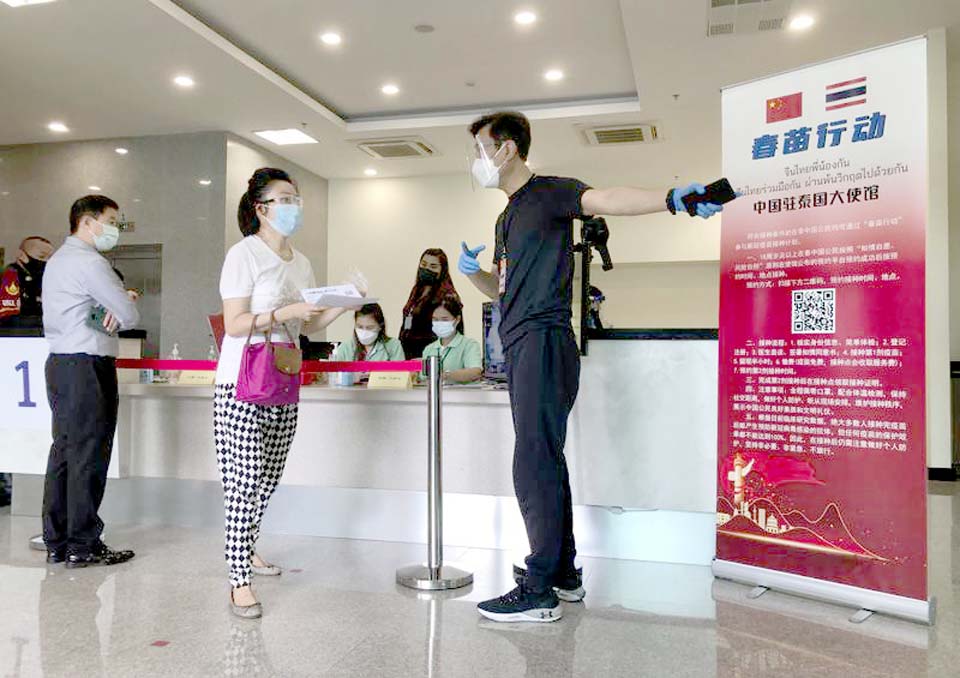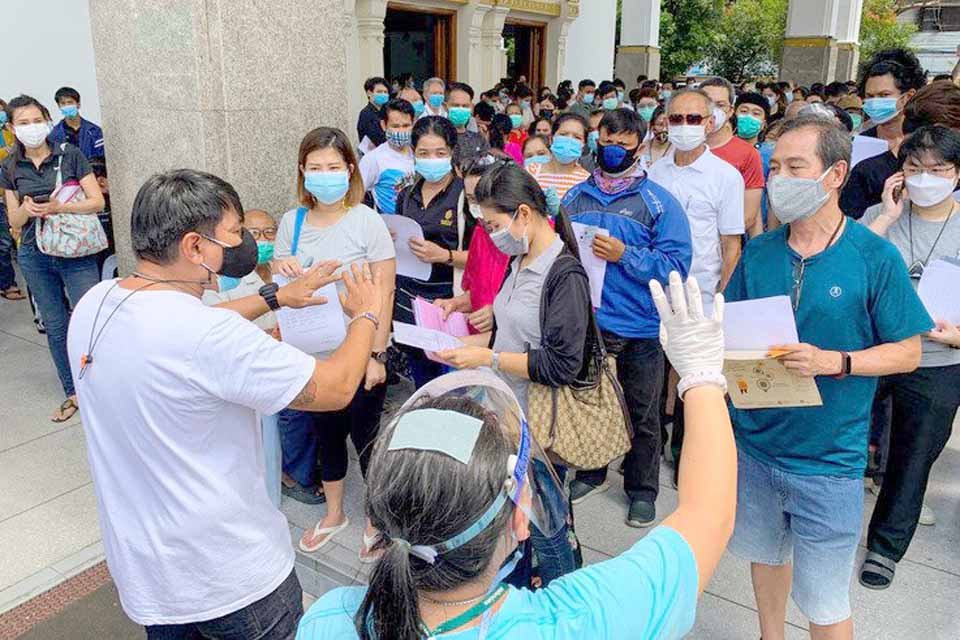
English-speaking residents here are angry at their governments for ensuring their far-flung embassy staffs are vaccinated against coronavirus, whilst ignoring their humble but taxpaying expats. The complaints have grown louder since the news that China has donated 500,000 vaccines to Thailand and, in return, is seeing its 150,000 nationals being jabbed in Thai hospitals in the ongoing Spring Sprout initiative.
The US pressure groups Democrats Abroad and Republicans Overseas are particularly vociferous after the US Secretary of State, Antony Blinken, confirmed it was his intention to vaccinate all foreign-based staff by mid-May. Alec Goldman, a 51-year old American educator residing here told Voice of America, “The embassy should be vaccinating its resident nationals here, just like it did in the 1980s when hepatitis “B” posed a big problem in Asia.”
But White House press secretary Jen Psaki responded that the US government did take seriously the safety of Americans abroad, but this did not extend to vaccinating its nationals. She added that Americans should keep in touch with the Thai authorities about the latest vaccination news. According to the Thai health authorities, foreigners will be able to register for jabs at Thai hospitals from June 7.
Several Pattaya-based British expats said they had tried to complain to their Bangkok embassy about inaction but found it impossible to register their complaints. “It’s virtually impossible to speak to an actual person about this. As soon as the word Covid is mentioned, you are referred to an embassy recording to hear about masks, hand washing and coughing,” said disgruntled expat Thomas Parker.

Another Pattaya retiree said he had written to his Liverpool MP to complain that the Bangkok embassy refused to listen. He did receive a reply from the parliamentarian who said he was very sorry to hear about the problem and that he was sure the most up-to-date information would be on the Foreign Office’s website. The expat added that his main worry was how long it would be before he actually received his jabs as he had heard there was a shortage of vaccines.
Meanwhile, the Australian government has forthrightly stated on its Bangkok embassy website that vaccinations are available only in Australia and that it cannot give any advice about the efficacy of any particular brand here. Recently, the Australian government announced it had given Thailand 68 million baht to assist in the roll-out programme to vaccinate Thais as quickly as possible.
Observers say that some VIP farang and special cases here have already been vaccinated nationwide. Understandably this category includes front-line workers including teachers, although some claim they were not given written proof of their new status and told to “keep quiet”. But others have managed to obtain a first jab with Astra Zeneca in out-of-the-way Bangkok hospitals simply by knowing the “right” people.
Many less fortunate residents are considering booking vaccine appointments overseas in the queue-jumping race. The problem for many expats is that the return to Thailand can be both complicated and uncomfortable, requiring the fulfillment of the documentary requirements of the local Thai embassy as well as 15 days compulsory quarantine on landing in the Land of Smiles.
 |
 |
 |





